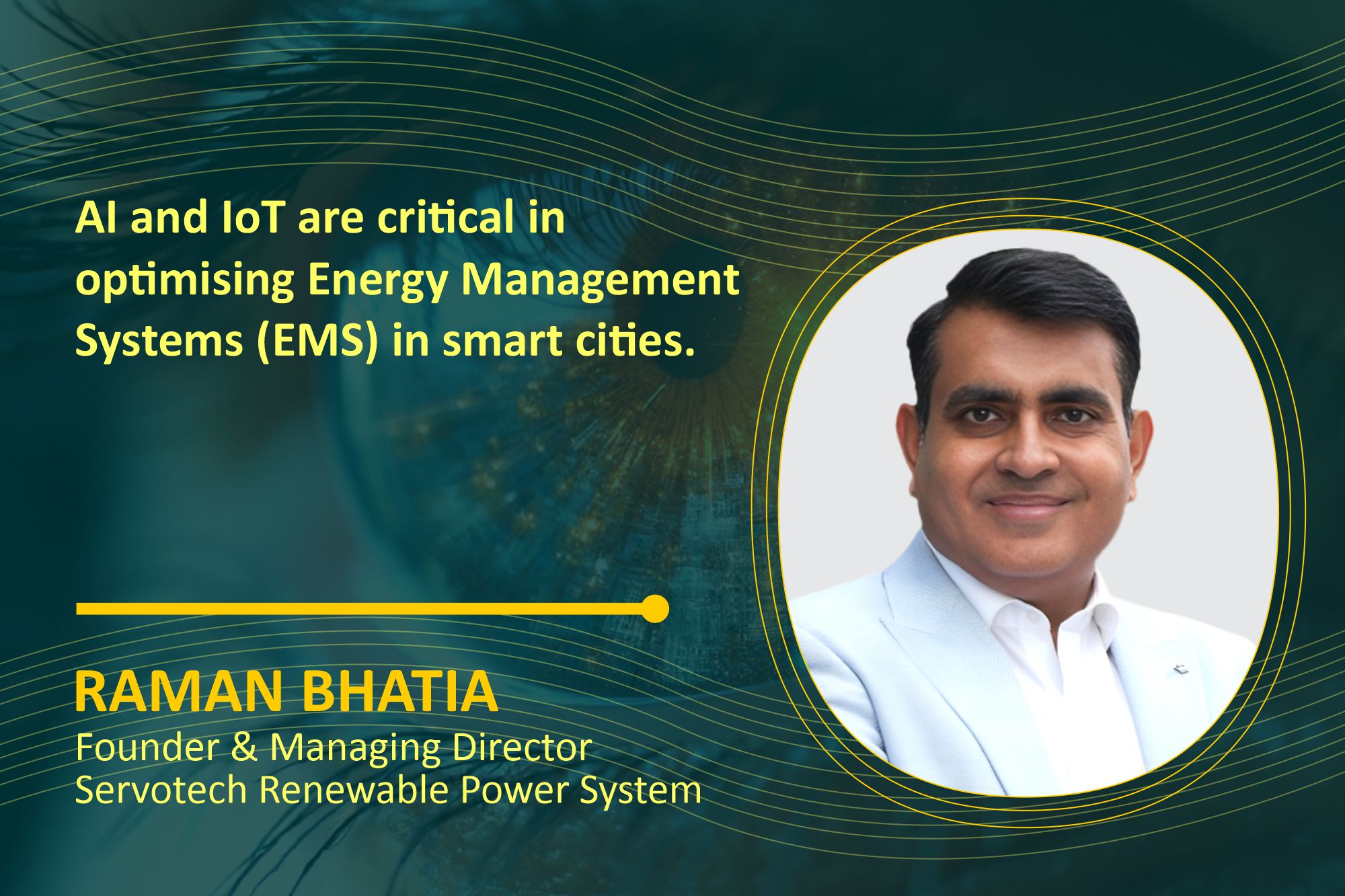Smart energy management for sustainable smart cities
By EPR Magazine Editorial January 4, 2025 3:41 pm IST
By EPR Magazine Editorial January 4, 2025 3:41 pm IST

Renewable energy, efficient power distribution, and advanced storage technologies are at the heart of smart city initiatives, opening the way for greener, more sustainable urban environments
Technology is fast growing as a foundation for sustainable urban development, combining modern infrastructure with innovation to produce efficient, comfortable, and environmentally friendly urban areas. With expanding urbanisation and rising energy consumption, comprehensive energy management systems are essential for promoting long-term growth. Renewable energy, efficient power distribution, and advanced storage technologies are at the heart of smart city initiatives, opening the way for greener, more sustainable urban environments.
Harnessing Solar PV Technology
As cities evolve into smart, sustainable ecosystems, solar photovoltaic (PV) electricity emerges as a critical component of this transformation. Solar photovoltaic systems use the abundant sun energy to generate clean, efficient, and sustainable power. Solar energy, by lowering reliance on fossil fuels, is consistent with the idea of smart cities as self-sufficient and ecologically conscientious communities. Integrating solar energy with advanced technologies such as Artificial Intelligence (AI) and the Internet of Things (IoT) improves energy efficiency and resilience. AI-powered analytics predict energy output, optimise solar system performance and anticipate maintenance requirements, whereas IoT allows for real-time communication between solar panels, inverters, and grid systems. This collaboration decreases carbon footprints, increases energy efficiency, and improves energy distribution.
Leveraging AI and IoT
AI and IoT are critical in optimising Energy Management Systems (EMS) in smart cities. These technologies, which use real-time data, are revolutionising energy generation, distribution, and consumption. AI algorithms estimate solar energy output, allowing for better grid integration and load management. IoT devices enable seamless communication among energy systems, allowing for dynamic modifications based on weather, energy demand, and grid conditions. This integration improves operating efficiency, automates issue detection, and allows for predictive maintenance, all contributing to sustainable and cost-effective energy solutions.
Innovations in Energy Storage and Cost Reduction
Advances in energy storage technology, particularly in smart grids, are critical to increasing storage capacity and lowering operational costs. Smart grids use artificial intelligence, IoT, and data analytics to optimise the flow of electricity between renewable sources such as solar PV systems and the power grid. IoT sensors and smart meters track energy use and storage levels in real-time, allowing excess solar energy generated during peak hours to be stored in sophisticated batteries for later use. These technologies reduce energy losses, stabilise the grid, and reduce dependency on costly peak power generation, resulting in lower overall costs.
UPS and Battery Storage for Energy SecurityUninterruptible Power Supply (UPS) systems and battery storage solutions are critical to energy security, especially during outages or grid instability. These systems ensure that important infrastructure, such as hospitals and data centres, receives continuous power, preventing disruption of vital services. Battery storage systems save excess renewable energy during peak demand or crises, minimising reliance on grid power. Furthermore, these technologies allow microgrids to run autonomously, which increases resilience in remote or disaster-prone places. UPS and battery solutions help urban energy networks be more stable and reliable by bridging power shortages and optimising energy utilisation.
Way Forward
Smart energy solutions are critical for creating sustainable and resilient cities as urbanisation drives up energy demand. Integrating renewable energy sources like solar PV with cutting-edge technologies like AI and IoT improves energy management by increasing efficiency, lowering prices, and strengthening energy security. Smart grids and advanced storage systems improve energy distribution, while UPS and battery storage solutions provide uninterrupted power. Together, these technologies accelerate the shift to greener, self-sufficient, and technologically advanced urban environments, laying the groundwork for a more sustainable and resilient future.
********************
Authored By : Raman Bhatia, Founder & Managing Director- Servotech Renewable Power System
We use cookies to personalize your experience. By continuing to visit this website you agree to our Terms & Conditions, Privacy Policy and Cookie Policy.